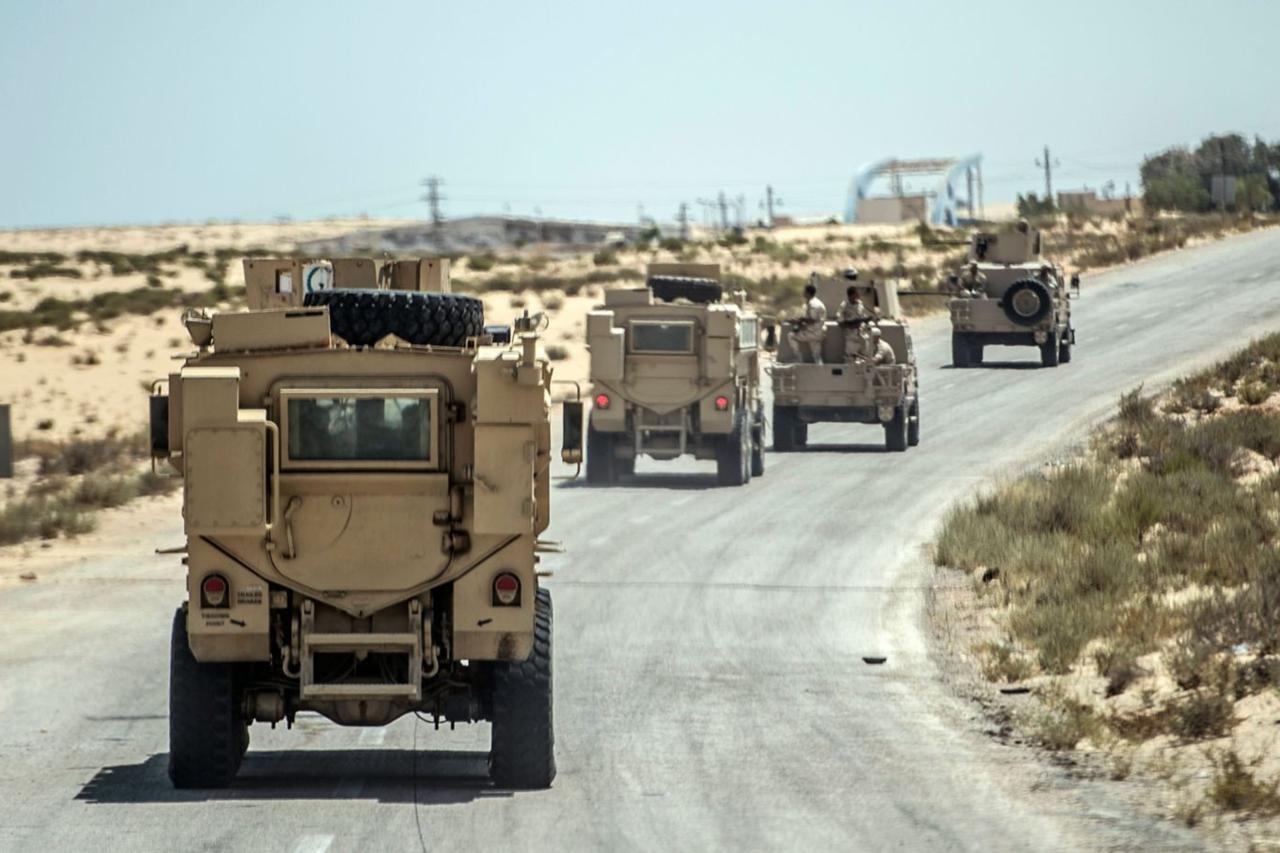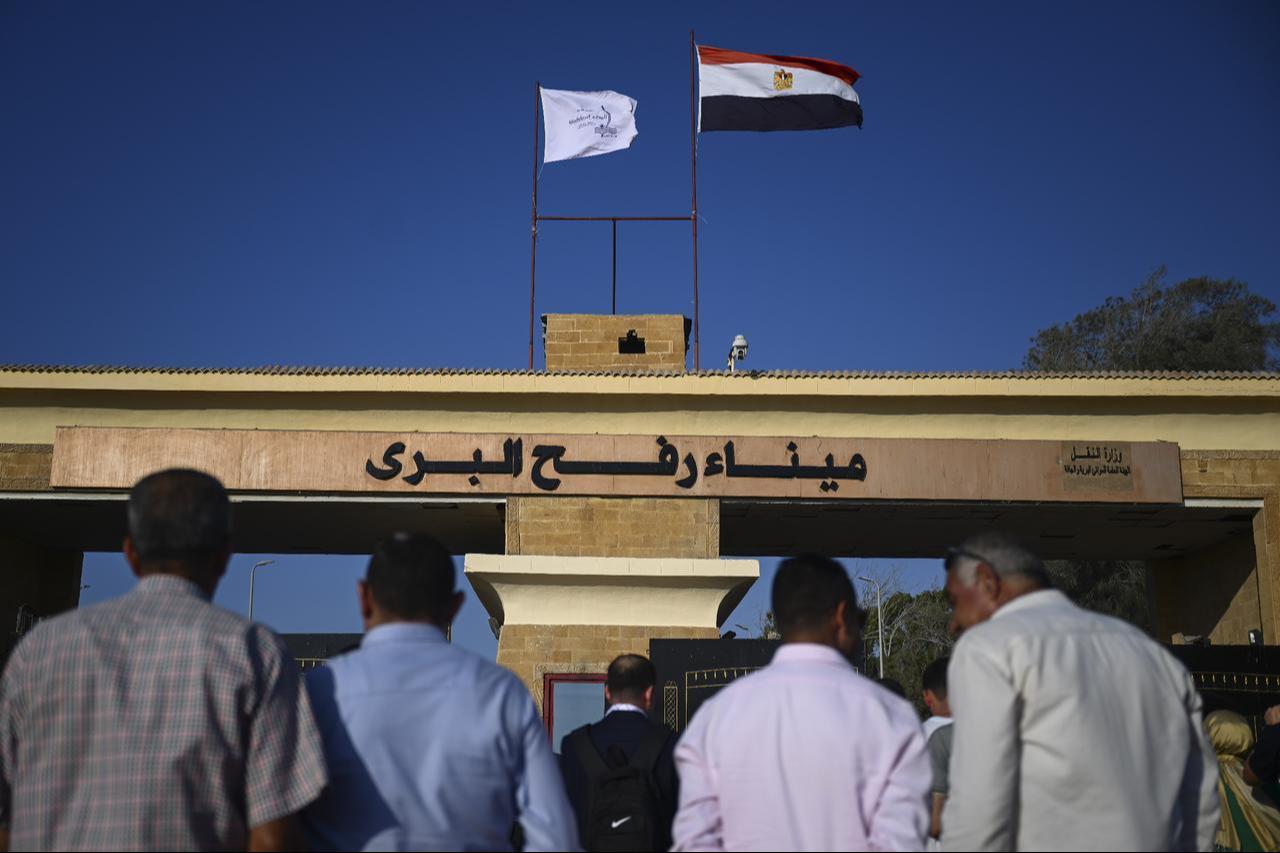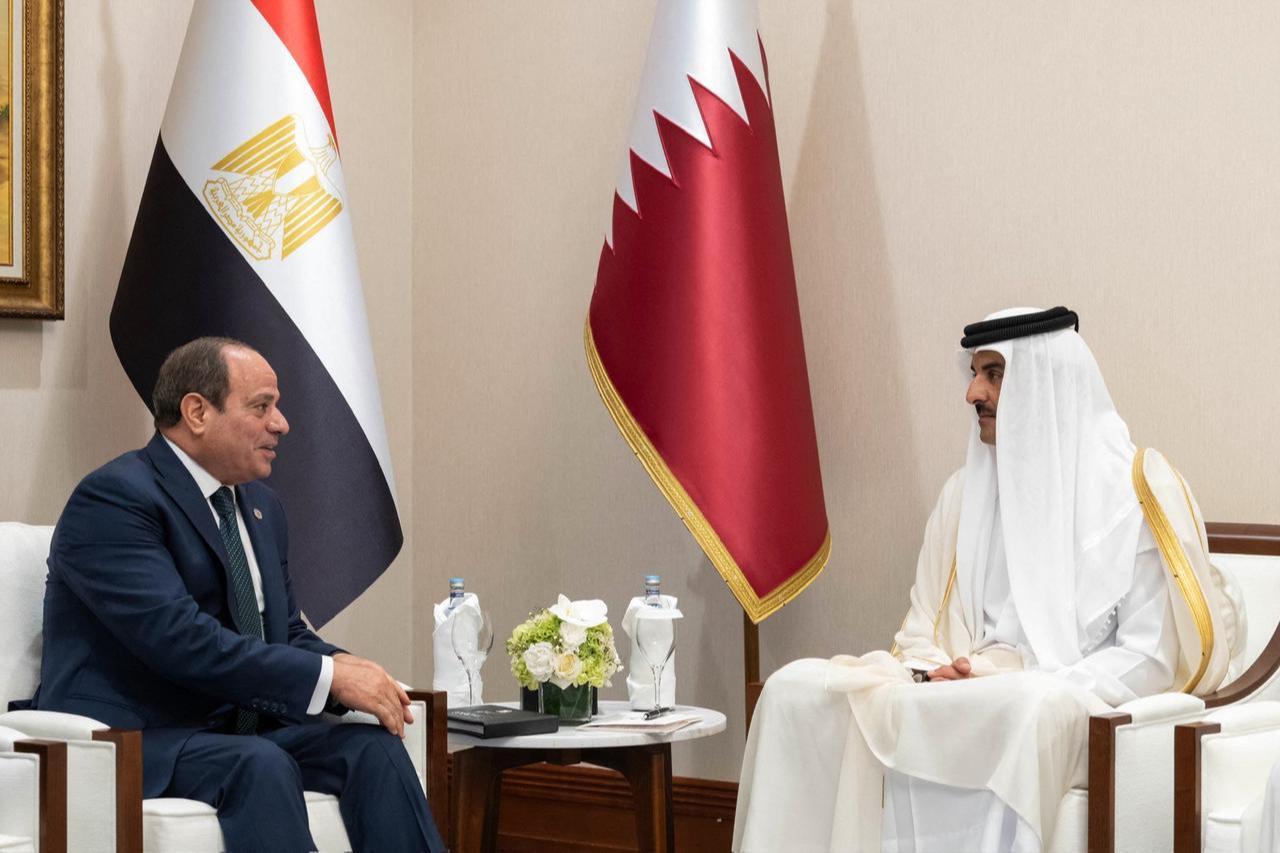
Egyptian President Abdel Fattah al-Sisi has long sought to position his country as a central pillar of regional security. Since 2015, he has championed the idea of an “Arab NATO,” a collective defense framework rooted in Nasser-era ambitions to make Egypt indispensable in the Arab world again.
At the time, Cairo and its neighbors were confronting existential threats from Daesh and Al-Qaeda.
Egypt itself was engaged in a grinding campaign against a Daesh-affiliate entrenched in Sinai.
The idea was that the Egypt-Gulf cooperation that developed around the opposition felt toward the Muslim Brotherhood was to be used for Egypt in Sinai.
But now it was the Gulf that was hit, and Egypt wanted to turn this moment of concern to its advantage.
Today, Israel’s war in Gaza and the growing instability it fuels have revived debates around such an Arab defense structure.
While the idea provides a political frame, Egypt has also been preparing in more practical, unilateral ways. Chief among them is the militarization of Sinai, where Cairo is quietly redrawing the lines of engagement.
Egypt’s recent decision to deploy Chinese-made HQ-9B long-range air defense systems in the Sinai Peninsula marks one of the most consequential military shifts in the region since the Camp David Accords.
The current $1.4 billion in annual military aid that the U.S. gives Egypt started in 1979 after the Camp David Accords were signed between Egypt and Israel.
By introducing a system designed to reach as far as Tel Aviv and Israel’s Negev air bases, Egypt has effectively complicated Israel’s long-assumed dominance in southern skies.
The presence of these systems serves a dual purpose. On the one hand, it strengthens Egypt’s deterrence capabilities and protects against the possibility of an uncontrolled refugee spillover from Gaza.
On the other hand, it signals that Cairo is willing to challenge the established security arrangements that have governed the Sinai for nearly half a century in light of recent developments.
In both respects, the deployment is a direct response to the shifting dynamics created by Israel’s ongoing genocide in Gaza.

The mass displacement of Palestinians from northern to southern Gaza has placed an enormous strain on Egypt. Cairo fears that sustained Israeli bombardments could eventually drive hundreds of thousands of people across the Rafah border crossing into Sinai.
For Egyptian leaders, such a scenario is unacceptable. It is not only a humanitarian concern but also a national security risk, potentially destabilizing an already fragile region.
President Abdel Fattah el-Sisi has publicly declared that the forced displacement of Palestinians into Sinai constitutes a casus belli. The deployment of advanced air defenses is the concrete expression of this political red line.

Egypt’s recent assertiveness cannot be understood without the shock created by Israel’s widening campaign. Cairo’s sense of threat was reshaped dramatically after the Israeli strike on Doha, which targeted Hamas figures abroad.
For Egypt, the incident raised the prospect that similar operations could extend to its own soil, creating a direct security risk in a country already hosting Hamas leaders as part of mediation efforts.
The possibility of an Israeli strike on Cairo is viewed as especially destabilizing.
Egyptian security agencies quickly tightened protections around Palestinian leaders residing in the capital, and officials reportedly conveyed sharp warnings to both Israel and the United States.
Any attack inside Egypt, they stressed, would provoke a response.
Arab media reports suggest that Cairo has gone further by quietly suspending certain elements of security coordination with Israel mandated by the Camp David framework.
For decades, Israel has operated with near-total freedom in the airspace over Gaza and southern Israel. Its fleet of F-35I Adir fighter jets, combined with advanced munitions such as Rampage and Delilah missiles, has reinforced this dominance.
The introduction of HQ-9B systems complicates this equation.
The HQ-9B is not invincible. Analysts argue that while the system poses significant challenges, it is unlikely to fully neutralize the F-35’s stealth capabilities.
However, its presence forces Israel to recalibrate its operations, raising the risks of routine patrols and strike missions.
In effect, Egypt has created a contested zone where Israel once held an uncontested edge.
This quiet challenge is precisely what Cairo appears to be aiming for: not a confrontation, but a deterrent that shifts the balance of risk. China recently denied sending the very same equipment to Iran.
The deployment raises questions about the durability of the Camp David Accords. Signed in 1979, the agreement divided Sinai into zones that restricted the presence of heavy weaponry near the Israeli border.
For years, Egypt adhered to these limitations, maintaining only modest troop levels and light weaponry in sensitive areas.
That framework has eroded steadily since the Gaza war escalated in 2023.
By the summer of 2025, Egypt had stationed over 40,000 troops in Sinai, far exceeding the treaty’s limits.
The HQ-9B deployment deepens this breach, along with the rhetoric that Cairo is no longer bound by constraints it views as outdated or impractical.
For Egyptian officials, the logic is clear: the Camp David restrictions cannot remain sacrosanct if Israel itself is reshaping the regional order through its actions in Gaza.
In Israel, the deployment has been met with alarm. Prime Minister Benjamin Netanyahu has reportedly urged the United States to pressure Cairo to scale back.
The U.S. response has been more muted in public but no less concerned.
Pentagon officials worry about the implications of Chinese-made systems operating in a theater where American and Israeli intelligence sharing is vital.
The deployment complicates joint operations and raises questions about interoperability.
For Washington, Egypt’s move is not just a military issue but a geopolitical signal that longstanding alliances can no longer be taken for granted.